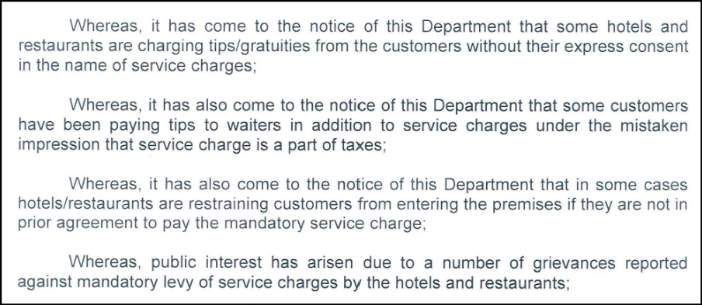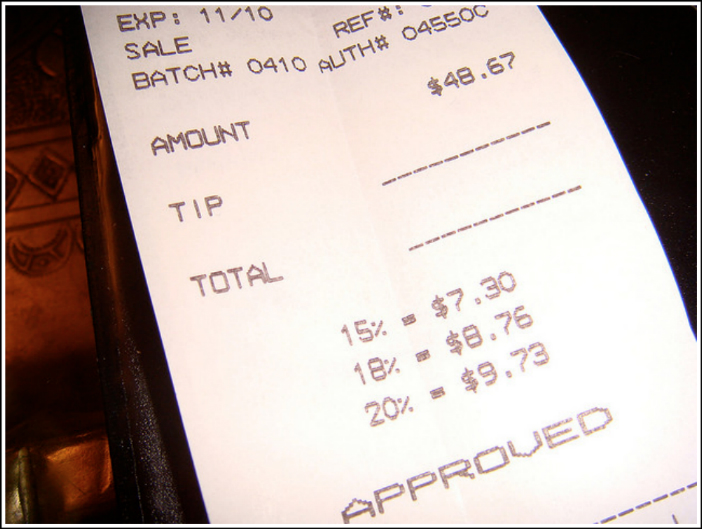[orc]The Central Government has issued new guidelines on ‘Service Charges’ in hotels. While the guidelines make mandatory collection of service charge an unfair trade practice, the success of this move is still doubtful.
In the beginning of this year, the government issued a press note clarifying its stand on the ‘service charge’ collected by many hotels and restaurants. While the press note mentions that making service charge mandatory constitutes an unfair trade practice, it did not specify how it intends to implement the same. Later, in an answer given in the Lok Sabha, the government said that it issued an advisory in December 2016 to the State Governments on this issue and it is the State Governments responsibility to disseminate the information. Factly had said earlier that lack of proper instructions by the government will not bring in any change. The government has now issued a set ofnew guidelines on this issue, but the doubts still remain.
Customers visiting hotels fall under the definition of Consumer
In the new set of guidelines, the government tried to distinguish between fair & unfair trade practices. It also mentions that some customers are of the impression that service charges are part of government taxes. Among other things the guidelines establish the following premise.
- Any customer visiting a hotel/restaurant and availing services falls under the definition of consumer as per the ‘Consumer Protection Act, 1986’
- Customers are being charged tips/gratuities without the consent of the customer
- Some hotels are restraining customers from entering their premises if they do not agree to pay the mandatory service charge

What do the new guidelines propose?
The new guidelines distinguish between fair & unfair trade practice and propose a model for hotels/restaurants to collect the voluntary service charge. The guidelines say
- Pricing of the product in every hotel should cover both the goods and service components
- When customers place an order in hotels/restaurants, it only means they agree to pay the prices mentioned on the menu card along with applicable taxes. Charging anything extra without the consent of the customer would be an unfair trade practice as per the ‘Consumer Protection Act’
- Tips/gratuities paid by the customer to the hotel staff is a transaction between the customer and the hotel staff at customer’s discretion. The hotel management has nothing to do with it.
- It also mentions that customer decides to pay the tip/gratuity only after completing the meal based on the quality of service etc. Entry of a customer is not to be understood as his/her consent to pay a fixed amount of service charge. Restriction of entry on this basis amounts to a restrictive trade practice under Sec 2(1) (nnn) of the ‘Consumer Protection Act’.
To overcome this situation, the government has proposed that the bill presented to the customer may display that service charge is voluntary and the service charge column should be left blank for the customer to fill in before making payment. The guidelines say that any customer can approach the relevant consumer court in case of such unfair trade practices.

Will this work?
The proposal by the government is akin to what is followed in the west. Enforcement of regulation in the west is far better compared to India and it is a more evolved market where most businesses follow such rules. But there are doubts about its success in a country like ours.

While customers can approach the relevant consumer court in case of violations, this is going to be a very time taking & arduous process. This will discourage most customers to even report such cases of violation. In fact in 2016-17, only 163 such complaints were received by the national consumer helpline in a large country like ours.
A possible way out could be empowering the local bodies (like municipal corporations) to take action in case of violations. The dedicated customer care numbers in use in most of these municipal corporations can also be used for this purpose. This would ensure quick resolution of the issue for the customer. Only those not satisfied with the action of the local body will approach the consumer forum.
Featured Image: Service Charge in Hotels

